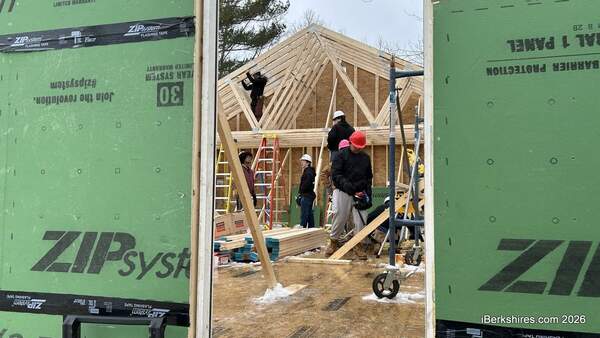MassWildlife: Turkey Troubles
March through May is breeding season for wild turkeys and, as a result, there is an increase in turkey activity across the Commonwealth. Some turkeys may act aggressively by pecking, following, or exhibiting other intimidating behavior towards people. Males puff out their feathers, fan their tails, and strut while gobbling and making other vocalizations. This behavior is common during the breeding season and other times of year when turkeys are establishing social dominance or status within the flock.
Wild turkeys live in flocks organized by pecking order. Each bird is dominant over or "pecks on" birds of lesser social status. Turkeys may attempt to dominate or attack people that they view as subordinates, and this behavior is observed most often during breeding season. They may also respond aggressively and peck shiny objects like windows or vehicles, interpreting their own reflection as an intruding turkey.
MassWildlife urges the public to never feed wild turkeys. Aggressive behavior towards people occurs when turkeys become overly comfortable in the presence of humans—usually over several months or even years, in areas where turkeys are fed. Never intentionally leave out food like bird seed or corn in attempts to help or view turkeys. Avoid using bird feeders, as fallen bird seed attracts turkeys and other wild animals which can ultimately lead to negative interactions with wildlife. For those who enjoy viewing songbirds, MassWildlife recommends landscaping with native plants or adding a water feature to attract birds.
"The most effective action people can take to prevent conflicts with turkeys is to stop feeding them," says Dave Scarpitti, MassWildlife’s Turkey Biologist. "Providing food, whether intentional or not, can cause turkeys to act tame and may lead to bold or aggressive behavior, especially in the breeding season. Once this behavior is established, it can be very difficult to change."
People are encouraged to scare or threaten bold turkeys with loud noises or water sprayed from a hose. A leashed dog may also be an effective deterrent. Mylar tape, balloons, or pinwheels can be used in and around your property as a deterrent to turkeys. These techniques may not be as successful in areas where turkeys have become highly habituated to humans over months or years. Read more about preventing conflicts with wild turkeys.
MassWildlife also reminds the public that the wild turkey is the state's official game bird and that the 2025 Spring Turkey Hunting Season begins Monday, April 28 and continues through Saturday, May 24. Licensed hunters with a turkey permit can harvest up to two bearded birds in the spring. Learn more about spring turkey hunting.
Tags: MassWildlife,


















